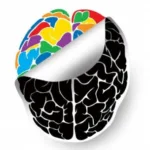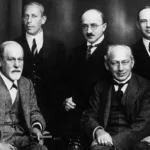
Criticizing others is a widely spread “sport” among many people. We talk about how others dress, how they think, how they behave, how they lead their lives…
But… what is hidden behind a criticism? What mechanisms make many people unable to suppress the impulse to judge others? Gestalt humanistic psychology promoted by Fritz Perls in the 1940s explains this phenomenon through a concept called “projection”.
Criticism of others and neurotic mechanisms
As a humanistic therapy, Gestalt is characterized by pursue personal fulfillment to fully develop human potential. One of its pillars is self-knowledge to recognize the relationship between the bodily sensations that our emotions cause us and link them with our needs to learn to satisfy them.
When the person she doesn’t know how to give herself what she really needsis when, according to Gestalt, neurotic mechanisms appear, which are all those disturbances both at the level of thought and behavior that arise due to the individual’s inability to do what they really want to try to adapt and be accepted by their social environment. Projection is one more of these mechanisms and is the basis of criticism of others.
What happens during the screening?
He who projects, rejects some aspects of himself and assigns them to others. What a person criticizes about another always has to do with the person who judges; It may be something you would like to do but don’t allow yourself, or something about your own personality that you dislike.
For example, if someone rejects another person’s extreme anger, it is possible that he does not recognize that anger as his own, because he does not want or can express it, or because he does not like his own uncontrolled anger. When criticizing, he will sometimes be right, but most of the time you will be passing your opinion through the filter of your own experience and will make serious mistakes judging others. Furthermore, you will feel powerless to change the situation, since the blame will always be external.
Therefore, the act of projecting or criticizing is the attribution to something or someone of one’s own qualities or feelings that we are not prepared to recognize as ours.
The role of dreams according to Gestalt
Another curious fact about the Gestalt paradigm is that according to this dreams are also projections. That is, what we dream about is that part that we do not integrate or that we do not have resolved about ourselves, so dreams can give us many clues about who we are, what worries us or what we need to solve at all times.
This perspective on the dream world tells us that behind much of the criticism of others there are very deep psychological mechanisms that affect us even when our mind has “disconnected” from the immediate environment of the present.
Closing the cycle of our needs
Therefore, when we criticize others we are actually talking about ourselves and this, instead of becoming something negative and looked at from this new point of view, can help us be more understanding and empathetic with what other people say or think.
On the other hand, it can guide our steps, since instead of remaining critical and always seeing the blame for what happens in others, it can tell us the steps we have to take to avoid going down paths and decisions that do not suit us. correspond and be consistent with what we feel.
Gestalt Therapy helps us identify these neurotic mechanisms that prevent us from closing the cycle of our needs and being aware of where we cut off our desires, in order to decide if we want to act the same and continue criticizing, or if we want to dare to be ourselves and not have the need to do so. One of the important objectives within Gestalt therapy is precisely to assimilate these projections, that is, to accept what we rejected as part of our experience.
So when we feel the uncontrollable temptation to judge others, it is more useful to stop and feel what is happening inside us and know how to take advantage of what our emotions and feelings tell us.








